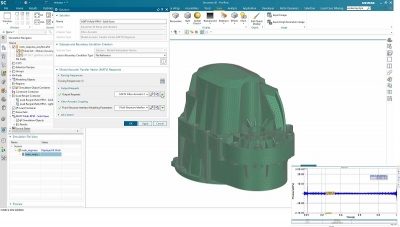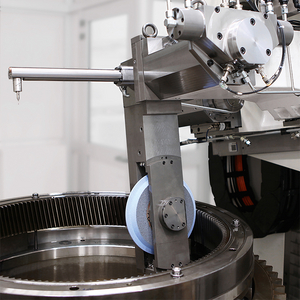Siemens Announces Simcenter 3D 2021

Siemens Digital Industries Software announces the availability of the latest release of Simcenter 3D software, part of the Simcenter portfolio of simulation and test solutions. Simcenter 3D and the Simcenter portfolio are part of the Xcelerator portfolio, Siemens’ integrated portfolio of software, services and application development platform.
In the 2021 release, Simcenter 3D continues to further improve its powerful unified and shared engineering platform for all simulation disciplines to help users gain full value of the benefits that simulation provides in terms of cost, speed and impact to innovation. Introducing new enhancements to the AI (Artificial Intelligence) driven user experience, new simulation types as well as refinements in accuracy and enhanced performance speed, Simcenter 3D 2021 can help companies understand true performance of their designs early in their development process.
In many applications, product innovation includes the engineering of the advanced material used in them, which is why new materials are being introduced into the market at unprecedented speed. Cracking is a very important consideration for advanced materials, however micro and meso cracking in advanced materials is difficult to model with the finite element method. Simcenter 3D now includes full representative volume element (RVE) separation and 2D and 3D automatic insertion of cracks or cohesive zones in materials. Macro and microstructural models now allow for full mesh separation for a crack to propagate completely through a material.
“Simcenter Multimech allows us to model microstructural cracks and determine how they would affect the overall part,” states Neraj Jain, group leader in simulation and engineering at the DLR Department of Ceramic Composites and Structures. “Using this tool, we can actually see where a crack is developing, how the crack will change our material, and how it will affect the final microstructure of the material.”
New to Simcenter 3D is an auralization post-processing tool that allows users to listen to simulated pressure results to evaluate sound quality. This allows acoustics engineers to actually hear the noise produced from various vibrating components or products as opposed to having to visually evaluate through charts or graphs.
Simulation-driven design can drastically lower the time it takes to bring a product to market. For this reason, Simcenter 3D’s thermal analysis capabilities have been scaled into a vertical solution for mold designers and design engineers. The new NX Mold Cooling product uses Simcenter 3D technology to allow designers to rapidly set up and simulate the thermal performance of an injection mold insert directly in NX as they are designing the mold. This allows for easy and rapid thermal analysis of injection mold designs without having to wait for expert analyst feedback.





